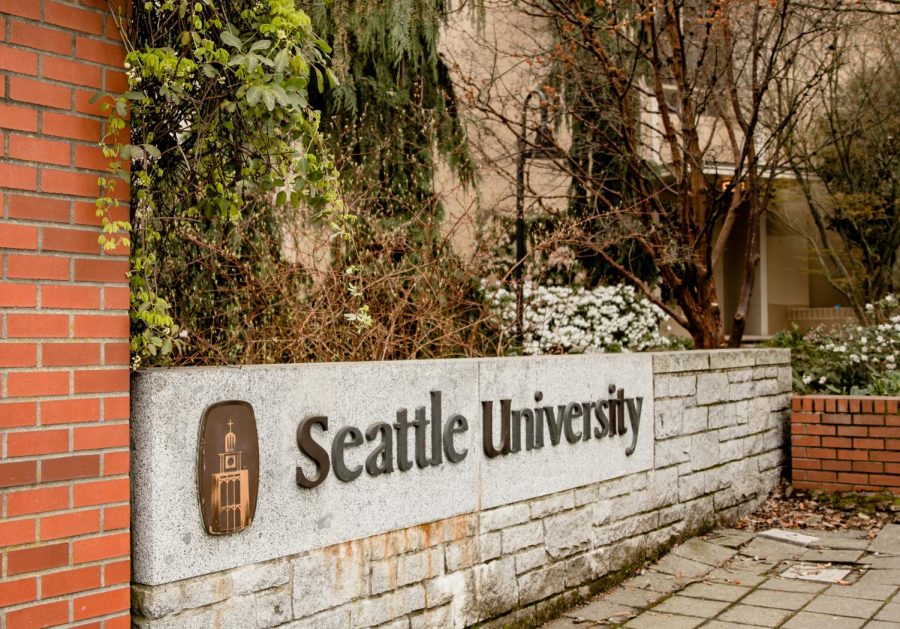Seattle U Receives Grant to Improve Upon Racially Diverse Curriculum
Seattle University signage by the north entrance to campus.
Recently, the Mellon Foundation, an organization that promotes and provides resources and grant funding to promote arts and humanities, selected a group of Seattle University faculty members’ curriculum project for a $495,000 grant. Out of the 280 grant proposals, only 26 were chosen. The Seattle U professors were also one of two grant recipient groups in the category of “Race and Racialization in the U.S.” that proposed a curriculum project as opposed to a research project.
The project, entitled “Race, Racialization and Resistance in the U.S.,” was created by the Associate Dean for Arts and Humanities María Bullón-Fernández, English Professor Charles M. Tung and History Department Chair Haejeong Hazel Hahn.
The awarded funding will be available for faculty to create new courses that address race, racialization and resistance in the U.S.. The project will contribute to learning and research regarding the U.S.’s relation to different races and cultures globally.
“Students are telling us that they want more diverse courses and that they want more attention to race,” Bullón-Fernández said. “They want less attention to white culture and a more diverse curriculum. I think we are seeing that in every department and college major.”
One of the motivators for the curriculum project was an understanding that students today are more connected and engaged with these issues in a way that other generations have not been. The faculty recognize that a large part of current issues like racial injustice, economic injustices and climate change are caused by previous generations’ actions. The project addresses generational action by enabling students to analyze these subjects complexly.
“Our purpose is to be able to open up more spaces for conversations about these very important topics on campus,” Hahn said.
Much of their work builds on what is already present in Seattle U courses and provides professors with funding to expand the curriculum in relation to these topics. Some of the courses that may change are English, history, philosophy, languages, religion, theology, art history, international studies and women, gender and sexuality studies, according to Hahn. There is also the potential for adding new courses, including the history of slavery, racial capitalism and poverty in the U.S..
“As educators, we want to enable students to create new and different futures,” Hahn said. “Learn from the past, take the best from the past and the present and let young people build futures.”
The project focuses on undergraduate students so they can engage in courses throughout their college experience that allow them to deeper explore these complex topics and ideas more with the aid of faculty.
The grant has a three-year timeline that started Jan. 1, 2023 and will continue through 2025. This gives faculty time to develop new courses as well as make amendments to the curriculum and courses already in place.
“The idea is that the majority of the new courses will begin to be taught during the grant period,” Tung said. “However, there are some that will begin to be taught after the grant period ends.”
If faculty receives funding near the end of 2025, they will need the time to create a course. This would still fall under the grant because they would receive the money before the final date.
“The project is really interested in encouraging faculty to create new courses,” Tung said. “To revisit current courses and to integrate into their curricula materials that allow students to think historically and broadly within a global framework.”
Overall, the project will bolster Seattle U’s ability to teach about race, racialization and resistance and work to provide students and faculty with a more comprehensive understanding of current and past social issues.
Correction: A previous version of this article stated that this project was only one of two grant recipients who proposed a curriculum project as opposed to a research project of all 280 grant proposals. Rather, this project was one of two curriculum projects selected on the topic of “Race and Racialization in the US” out of the 12 total selected in the category. The article has been updated to reflect this information.


